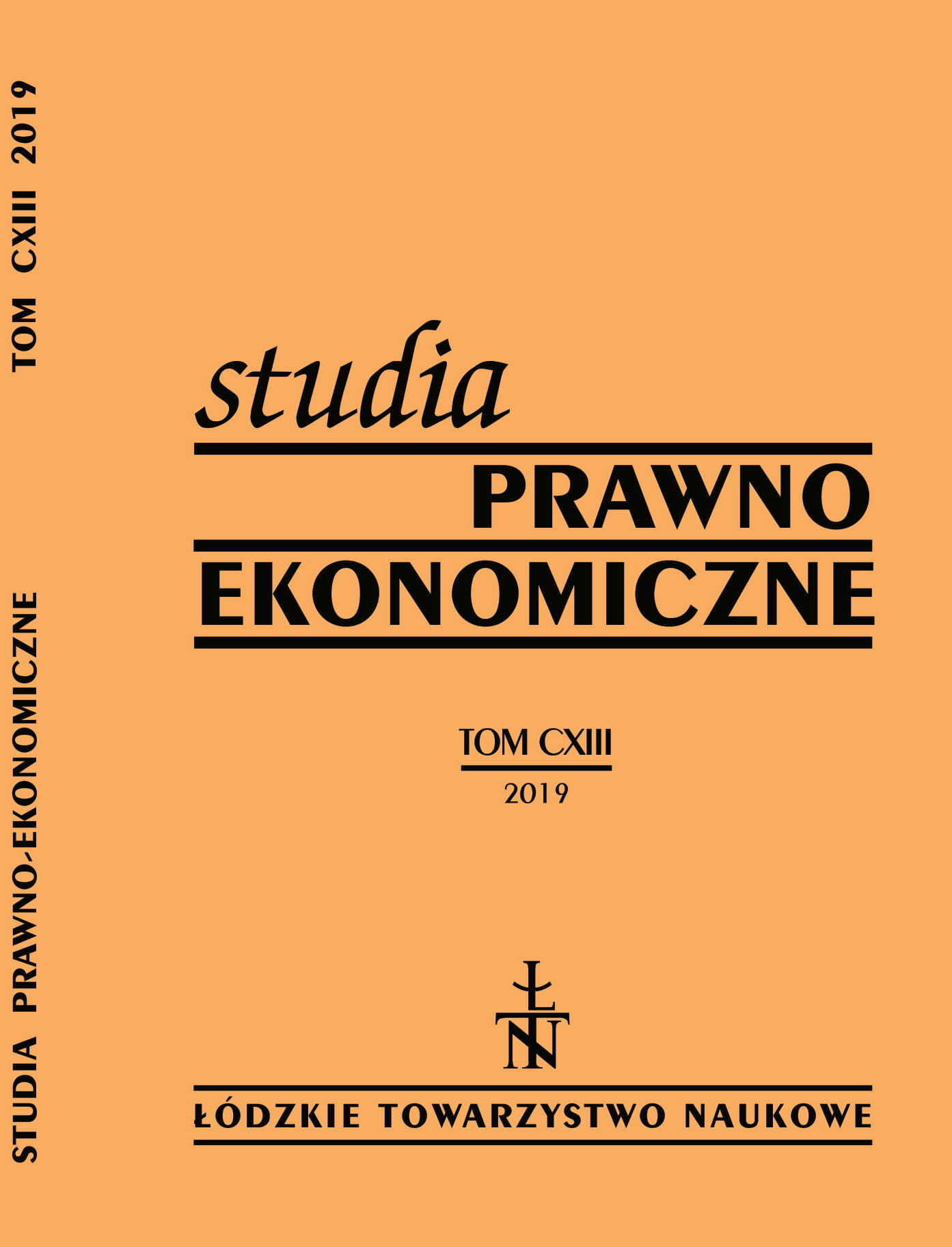Incentives for academic teachers in Poland in the context of the multitasking agency model
DOI:
https://doi.org/10.26485/SPE/2019/113/15Keywords:
agency theory, principal-agent model, incentive system, universities in PolandAbstract
Background: Shaping motivations in the principal-agent relationship is the basis for the effective functioning of both market entities and organizations. The multitasking problem at universities is associated with hidden actions (moral hazard). The inability to constantly monitor the work of an academic teacher and the difficulty in measuring his/her effectiveness are conducive to the emergence of these phenomena. The problem can be solved by a properly designed contract.
Research purpose: The aim of the article is to analyze solutions relating to the system of financing higher education contained in the Act of 20 July 2018 – the Law on Higher Education and Science – in the context of the Multitasking Agency Model. On this basis, proposals for incentive solutions that increase the effectiveness of the Polish academic teacher’s work are presented.
Methods: The article analyzes the multitasking agency model, which is then complemented with empirical data and a description of juridical solutions.
Conclusions: Considering the teachers’ research activities, the incentive system should be based on bonus points for each publication above a given point floor, while linking university funding with the number of students would indicate the need to introduce a similar mechanism for didactic activities.
References
Ustawa z dnia 20 lipca 2018 r. Prawo o szkolnictwie wyższym i nauce (Dz.U. z 2018 r., poz. 1668).
Baker George P., Distortion and Risk in Optimal Incentive Contracts, The Journal of Human Resources, Autumn, 2002/37/4, s. 728–775.
Baker George P., Incentive Contracts and Performance Measurement, Journal of Political Econ¬omy 1992/100/3, s. 598–614.
Bolton Patrick, Dewatripont Mathias, Contract Theory, The MIT Press, London 2005.
Brickley James A., Zimmerman Jerold L., Changing incentives in a multitask environment: evidence from a toptier business school, Journal of Corporate Finance 2001/7 (4), s. 367–396.
de Philippis Marta, Multitask agents and incentives: the case of teaching and research for university professors, Temi di Discussione (Working Papers) 2015/1042, s. 1–50.
Dewatripont Mathias, Jewitt Ian, Tirole Jean, Multitask agency problems. Focus and task clus¬tering, European Economic Review 2000/44, Issues 4–6, s. 869–877.
Feltham Gerald, Xie Jim, Performance Measure Congruity and Diversity in Multi-Task Prin-cipal/Agent Relations, The Accounting Review 1994/69 (3), s. 429–453.
Fryer Jr. Roland G., Holden Richard T., Multitasking, dynamic complementarities, and incentives: A cautionary tale. Technical report, Cambridge, Massachusetts: Harvard University 2013.
Gibbons Robert, Incentives and Careers in Organizations, Journal of Economic Perspectives 1998/12 (4), s. 115–132.
GUS, Szkoły wyższe i ich finanse w 2017 r., Warszawa 2018.
Holmström Bengt, Milgrom Paul, Multitask Principal-Agent Analyses: Incentive Contracts, Asset Ownership, and Job Design, Journal of Law, Economics, & Organization 1991/7 (1), s. 24–52.
Marsh Herbert W., Hattie John, The Relation between Research Productivity and Teaching Effectiveness: Complementary, Antagonistic, or Independent Constructs?, The Journal of Higher Education, Sep.–Oct., 2002/73/5, s. 603–641.
Meyer Marshall W., Gupta Vipin, The performance paradox, Research in Organizational Behavior 1994/16, s. 309–369.
Payne Abigail, Roberts Joanne, Government oversight of public universities: Are centralized performance schemes related to increased quantity or quality?, The Review of Economics and Statistics 2010/92 (1), s. 207–212.
Piwowarski Radosław, Czy wskaźnik efektywności zatrudnieniowej ulega paradoksowi efektywności?, Acta Universitatis Lodziensis. Folia Oeconomica 2017/327 (1), s. 187–202.
Wilkin Jerzy, Instytucjonalne i kulturowe podstawy gospodarowania. Humanistyczna perspektywa ekonomii, Wydawnictwo Naukowe SCHOLAR, Warszawa 2016.
http://prawo.sejm.gov.pl/isap.nsf/DocDetails.xsp?id=WDU20180001668; stan na 22.06.2019 r.
https://legislacja.rcl.gov.pl/projekt/12322309/katalog/12604666#12604666; stan na 25.07.2019 r.
https://nkn.gov.pl/wp-content/uploads/2017/09/uczelnie.pptx; stan na 18.07.2019 r.







